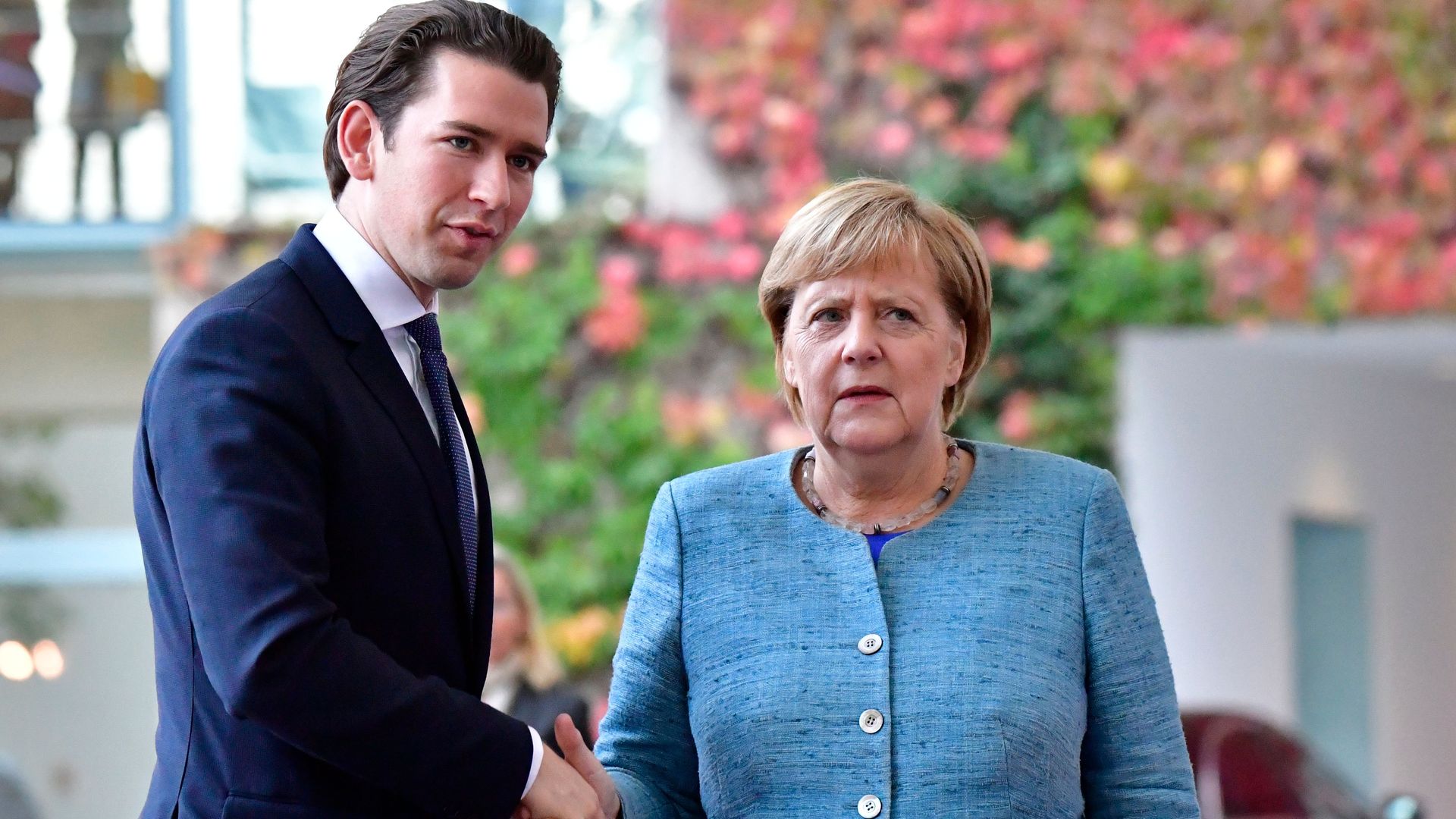Populism smothers Europe's mainstream conservatives
Add Axios as your preferred source to
see more of our stories on Google.

Kurz (L) and Merkel. Photo: Tobias Schwarz/AFP/Getty Images
Austria’s coalition government has shattered in spectacular fashion after video emerged over the weekend of Vice Chancellor Heinz-Christian Strache discussing how a woman he believed to be a wealthy Russian could secretly funnel money to his far-right Freedom Party.
The backdrop: Chancellor Sebastian Kurz of the conservative People’s Party quickly terminated his partnership with the populists, triggering fresh elections in September. It was Kurz who brought the Freedom Party, which has a long history of racist and anti-Semitic rhetoric, into government 17 months ago. He defended that decision yesterday, but said “enough is enough.”
Why it matters: Mainstream politicians all over Europe have been flummoxed by the rise of anti-establishment parties, particularly on the far right. Kurz argued that the Freedom Party would be less destructive inside the tent, where they’d be forced to adapt to the realities of governance, than howling from the outside.
- That approach won Kurz widespread praise and worked, up to a point. He remains popular, and he might now steal votes from his discredited former coalition partners.
- The Strache affair is nonetheless an embarrassment. The lesson for “[o]ther mainstream European politicians facing threats from a growing far right” is clear, according to Alina Polyakova of Brookings: “pandering to them doesn’t work.”
Nothing else they've tried has worked either.
- Spain’s People’s Party tacked hard right to fend off a challenge from the upstart Vox Party last month, only to suffer a disastrous defeat.
- Once-powerful center-right parties have been boxed out both from the liberal center, as in France, and the far right, as in Italy.
- Angela Merkel’s Christian Democrats have clung to power but watched German politics fracture around them. Merkel is on her way out, with the far-right AfD taking credit.
Nowhere is the populist right more emboldened than in the U.K., where Nigel Farage’s Brexit Party is poised to win three times as many votes as the ruling Conservatives in this week’s European parliamentary elections.
- Prime Minister Theresa May is likely to depart before the end of the summer, having failed to deliver Brexit due in part to hardline demands from her party's right flank.
- Boris Johnson is the favorite to replace her, in part because as a hardline Brexiteer he can credibly claim he’d win back Brexit Party voters. What he almost certainly can't do, writes Telegraph Europe editor Peter Foster, is win a parliamentary majority for his approach to Brexit.
What to watch: Farage is just one of the populist protagonists in this week’s European elections.
- A far-right bloc led by Italy’s Matteo Salvini is on the rise. Meanwhile, the long-dominant European People's Party grouping is expected to lose about a quarter of its seats.
- One of the chief headaches for that center-right bloc is dealing with a recalcitrant member and proud populist: Hungarian Prime Minister Viktor Orbán.
The big picture: It’s not just the conservatives. “Social democratic parties [on the center-left] have been hit even harder,” says Erik Brattberg of the Carnegie Endowment.
- Brattberg says it’s not so much the traditional parties’ politics that are turning voters off, but the very fact that they’re the traditional parties. “Mainstream parties don’t excite voters anymore,” he says.
